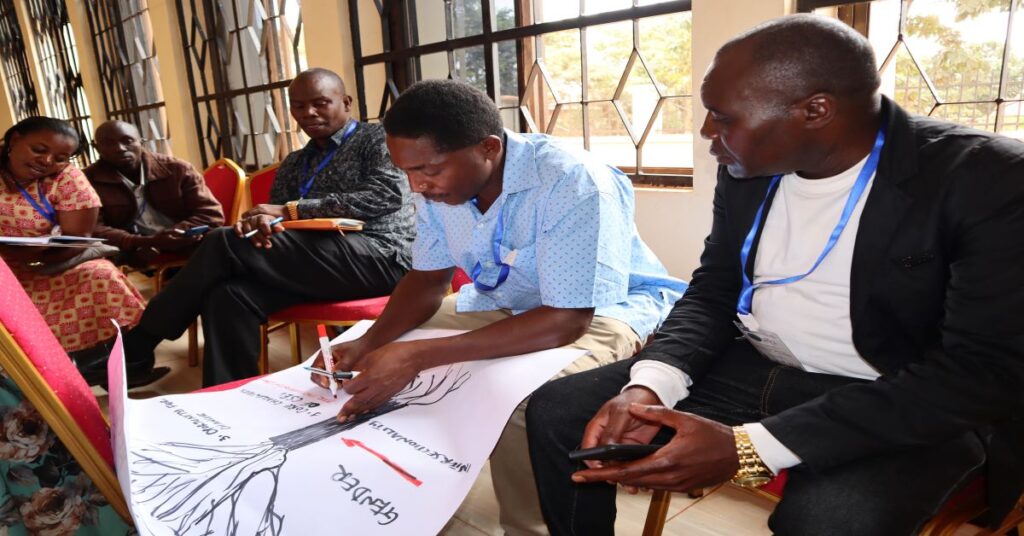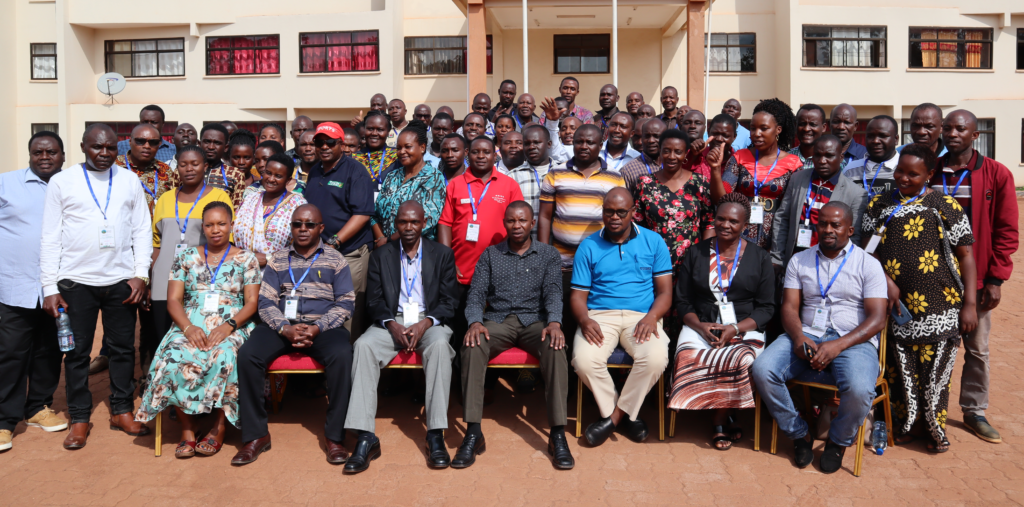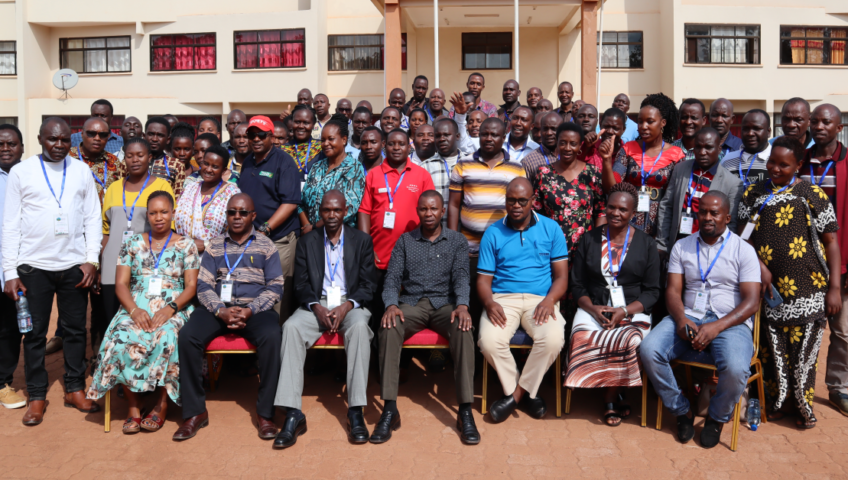The International Institute of Tropical Agriculture (IITA) and Tanzania Agricultural Research Institute (TARI), through the Muhogo Bora (Better Cassava) program, recently organized intensive training for the extension officers, district agricultural officers, and regional agricultural advisors working in the Western Zone of Tanzania. The training is part of efforts to support the development and expansion of seed systems in the cassava sub-sector.
The five-day-long training was held from 14 to 18 March 2022 in Kasulu District, Kigoma Region with 61 participants from Katavi, Tabora and Kigoma regions and training facilitators from IITA, TARI, and Tanzania Official Seed Certification Institute (TOSCI).The training introduced the commercialized cassava seed systems model. Extension workers learned about good agricultural practices, pests and diseases, identifying cassava varieties, cassava seed multiplication, seed quality control, and the registration process. They also learned about the seed business to help them understand the cassava seed system and better support the farmers they serve, and digital tools such as Seed Tracker and PlantVillage Nuru.
The participants were also trained on gender integration in agricultural research. They understood basic concepts in gender research and how they are linked to agriculture and cassava seed systems. They were able to embrace gender and social inclusivity in cassava seed entrepreneurs’ work and become gender champions for the Muhogo Bora project and other related initiatives.

Testimonies about the training
Stephania Chiza is a female extension agent in Nsimbo District, Katavi Region. She welcomed more participatory sessions where trainers asked for feedback and input from the trainees. “I was surprised to be in participatory training where we were even tested on our understanding of the topics; many of us are not used to this style. I learned that a participatory meeting helps the participants to have a sense of belonging and share their views openly,” she said.
Charles Lembo, Senior Agricultural Field Officer and Cassava Focal Person in Uvinza District, Kigoma Region, expressed to be 50% knowledgeable on Good Agronomic Practices (GAP) of cassava management but was impressed with the newly gained knowledge on gender, which he knew very little of. “My take-home is the gender intersectionality, the real scenarios that are within our communities. Being aware of this will help us to be conscious and inclusive in selecting farmers to work with so that they all improve their livelihoods and community development. I will practice it starting with my family, then share it with people in my community” he said.
Toligwe Msongwe, District Agricultural Irrigation and Cooperative Officer (DAICO) in Uvinza District, Kigoma region was interested more in gender and how it closely affects agricultural activities. She noted that agricultural officers notice some activities/ technologies not being implemented because of gender-related issues.Toligwe is looking forward to integrating gender into her work plan so that information reaches the respective person for action.
During the field visit, the Crop Officer in Kaliua District, Tabora region said “I am excited about using the digital tools. I had challenges understanding and identifying the symptoms of cassava diseases, especially the Cassava Brown Streak Disease (CBSD) but using PlantVillage Nuru will help solve the challenge. Also, using the SeedTracker tool will help locate the nearest seed producers for my farmers.”
Muhogo Bora is a three-year project aiming to provide support to develop and expand cassava seed systems in Tanzania, focusing on women, youth, and rural farmers’ participation in cassava seed systems and the value chain. Cornell CALS leads the project in collaboration with IITA, TARI, and TOSCI.


